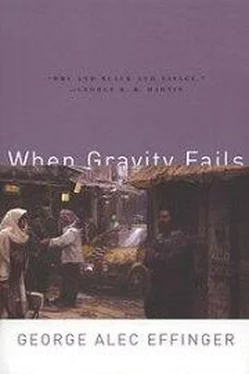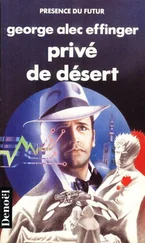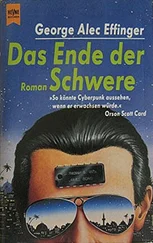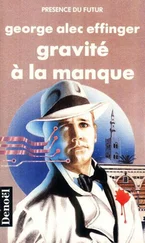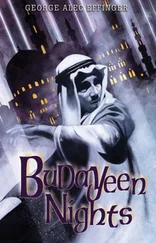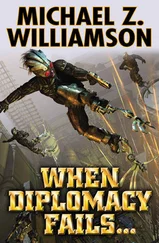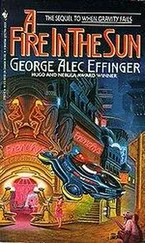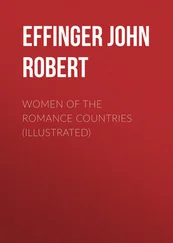I got up again, stuck a wad of a few hundred kiam in my pocket, found my keys, and went back downstairs. I began to feel just the beginning of some kind of emotional reaction. I paid close attention: I was nervous, not pleasantly so; and I was sure that I was fighting my way up the thirteen steps of the gallows, intent on putting my head in some as-yet-unseen noose. I walked down the Street to the east gate of the Budayeen and looked for Bill. I didn’t see him. I got into another cab. “Take me to Friedlander Bey’s house,” I said.
The driver turned around and looked at me. “No,” he said flatly. I got out and found another driver who didn’t mind going mere. I made sure we agreed on the cabfare first, though.
When we got there I paid the driver and climbed out. I hadn’t let anyone know I was coming; Papa probably didn’t expect to see me for another day. Nevertheless, his servant was holding the polished mahogany door open before I reached the top of the white marble stairs. “Mr. Audran,” he murmured.
“I’m surprised you remember,” I said.
He shrugged — I couldn’t say if he smiled or not — and said, “Peace be upon you.” He turned away.
I said “And upon you be peace” to his back and followed. He led me to Papa’s offices, to the same waiting room I had seen before. I went in, sat down, stood up again restlessly, and began to pace. I didn’t know why I’d come here. After “Hello, how are you?” I was depressed to find I had nothing else to say to Papa at all. But Friedlander Bey was a good host when it served his purposes, and he wouldn’t let a guest feel uncomfortable.
In a while the communicating door opened and one of the sandstone giants gestured. I passed by him and came again into Papa’s presence. He looked very tired, as if he had been handling urgent financial, political, religious, judicial, and military matters without rest for many hours. His white shirt was stained with perspiration, his fine hair mussed, his eyes weary and bloodshot. His hand trembled as he gestured to the Stone That Speaks. “Coffee,” he said, in a hoarse and peculiarly soft voice. He turned to me. “Come, my nephew, be seated. You must tell me if you are well. It pleases Allah that the surgery was successful. I have had several reports from Dr. Lisan. He was quite satisfied with the results. In that regard I am also satisfied, but of course the true proof of the value of the implants will be in how you use them.”
I nodded, that’s all.
The Stone arrived with the coffee, and it gave me a few minutes to settle my nerves while we sipped and chatted. I realized that Papa was looking at me rather closely, his brows drawn together, his expression mildly displeased. I closed my eyes in exasperation: I had come in my usual street clothes. The jeans and boots were fine in Chiri’s club or for hanging out with Mahmoud, Jacques, and Saied, but Papa preferred to see me in the gallebeya and keffiya . Too late now, I told myself; I’d started off in the hole, and I was going to have to climb out of it and gain some more ground to get back in his good graces.
I shook my cup back and forth a little after the second refilling, indicating that I had had enough. The coffee things were cleared away, and Papa murmured something to the Stone. The huge man left the room also. This was the first time, I believe, that I’d been alone with Papa. I waited.
The old man pressed his lips together while he thought. “I am glad that you thought enough of my wishes to undergo the surgery,” he said.
“O Shaykh,” I said, “it is—”
He shut me up with a quick gesture. “However, merely having the surgery will not solve our problems. That is unfortunate. I have had other reports that told me you were reluctant to explore the full benefits of my gifts. You may be thinking that you can satisfy our arrangement by wearing the implants, but not using them. If you are thinking that, you are deluding yourself. Our mutual problem cannot be solved unless you agree to use the weapon I have given you, and use it to the utmost. I have not had such augmentation myself because I believe my religion forbids it; therefore, one might argue that I am not the proper person to advise you on this matter. Yet I think I know a thing or two about personality modules. Would you care to discuss a proper choice with me?”
The man was reading my mind, but that was his job. The odd thing was that the deeper in I got, the easier it seemed to be to talk to Friedlander Bey. I wasn’t even properly terrified when I heard myself declining his offer. “O Shaykh,” I said, “we do not even agree on the identity of our enemy. How then can we hope to choose a suitable personality as an instrument of our vengeance?”
There was a brief silence during which I heard my heart give one good bam! and start on another. Papa’s eyebrows raised a little and fell back into place. “Once again, my nephew, you prove to me that I was not mistaken in my choice of you. You are correct. How then do you propose to begin?”
“O Shaykh, I will begin by making a closer ally of Lieutenant Okking, and getting all the information he has in the police files. I know certain things about some of the victims that I’m sure he does not. I see no reason to give him this information now, but he may require it later. I will then interview all our mutual friends; I think I will find further clues. A careful, scientific examination of all the available data should be the first step.”
Friedlander Bey nodded thoughtfully. “Okking has information you do not have. You have information he does not have. Someone should assemble all that information in one place, and I would rather that person be you, and not the good lieutenant. Yes, I am pleased with your suggestion.”
“All who see you, live, O Shaykh.”
“May Allah grant that you go and come in safety.”
I saw no reason to tell him that what I truly planned to do was make a closer scrutiny of Herr Lutz Seipolt. What I knew of Nikki and her death made the whole affair more sinister than either Papa or Lieutenant Okking were willing to admit. I still had the moddy I’d found in Nikki’s purse. I’d never mentioned that moddy to anyone. I would have to find out what was recorded on it. I also hadn’t mentioned the ring or the scarab.
It took me another few minutes to ease myself out of Friedlander Bey’s villa, and then I couldn’t find a taxi. I ended up walking, but I didn’t mind because I was having a fierce argument with myself all the way. The argument went like this:
Self 1(afraid of Papa): “Well, why not do what he wants? Just collect all the information and let him suggest the next step. Otherwise, you’ll just be asking for a broken body. If not a dead one.”
Self 2(afraid of death and disaster): “Because every step I take is directly toward two — not one, but two — psychopathic murderers who don’t care half a chickpea if I live or die. As a matter of fact, either or both of them would probably give considerably more than that just for the chance to put a bullet between my eyes or slit my throat. That’s why.”
Both selves had considerable stores of logical, reasonable things to say. It was like being at a mental tennis match: one would bash a statement across the net, and the other would bash a refutation right back. They were too evenly matched, the rally would go on forever. After a while I got bored and stopped watching. I had all the equipment, after all, to become El Cid or Khomeini or anybody else, and why was I still hesitating? Nobody else around here had any of my qualms. I didn’t think of myself as a coward, either. What would it take to get me to chip in that first moddy?
I got the answer to that the very same night. I heard the sunset call to prayer as I passed through the gate and headed up the Street. Outside the Budayeen, the muezzin sounded almost ethereal; inside the gate, the same man’s voice had somehow gained a reproachful note. Or was that my imagination? I wandered over to Chiriga’s nightclub and sat down at the bar. She wasn’t there. Behind the bar was Jamila, who had worked for Chiri a few weeks ago and then quit after my Russian was shot in the club. People come and go around the Budayeen; they’ll work in one club and get fired or quit over some dumb-ass little thing, go work someplace else, eventually make the circuit and end up back where they started. Jamila was one of those people who can make the circuit faster than most. She was lucky to hang onto a job in one place for seven days running.
Читать дальше
